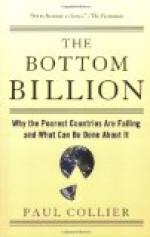Let’s play it out as if it were
a sport
Wherein the game is better
than the goal,
And never mind the detailed “score’s”
report
Of errors made, if each with
dauntless soul
But stick it out until the day is done,
Not wasting fairness for success
or fame,
So when the battle has been lost or won,
The world at least can say:
“He played the game.”
Let’s play it out—this
little game called Work,
Or War or Love or what part
each may draw;
Play like a man who scorns to quit or
shirk
Because the break may carry
some deep flaw;
Nor simply holding that the goal is all
That keeps the player in the
contest staying;
But stick it out from curtain rise to
fall,
As if the game itself were
worth the playing.
Grantland Rice.
From “The Sportlight.”
COURAGE
The philosopher Kant held himself to his habits so precisely that people set their watches by him as he took his daily walk. We may be equally constant amid worldly vicissitudes, but only a man of true courage is.
’Tis the front towards life that
matters most—
The tone, the point of view,
The constancy that in defeat
Remains untouched and true;
For death in patriot fight may be
Less gallant than a smile,
And high endeavor, to the gods,
Seems in itself worth while!
Florence Earle Coates.
From “Poems.”
A GOOD NAME
We should respect the good name of other people, and should safeguard our own by a high sense of honor. At the close of the Civil War a representative of an insurance company offered Robert E. Lee the presidency of the firm at a salary of $50,000 a year. Lee replied that while he wished to earn his living, he doubted whether his services would be worth so large a sum. “We don’t want your services,” the man interrupted; “we want your name.” “That,” said Lee, quietly, “is not for sale.” He accepted, instead, the presidency of a college at $1500 a year.
Good name in man and woman, dear my lord,
Is the immediate jewel of their souls:
Who steals my purse steals trash; ’tis
something, nothing;
’Twas mine, ’tis his, and
has been slave to thousands;
But he that filches from me my good name
Robs me of that which not enriches him,
And makes me poor indeed.
William Shakespeare.
SWELLITIS
A certain employer of large numbers of men makes it a principle to praise none of them, not because they are undeserving, and not because he dislikes to commend, but because experience has taught him that usually the praise goes to the head of the recipient, both impairing his work and making it harder for others to associate with him. A good test of a man is his way of taking commendation. He may, even while grateful, be stirred to humility that he has not done better still, and may resolve to accomplish more. Or imitating the frog who wished to look like an ox, he may swell and swell until—figuratively speaking—he bursts.




